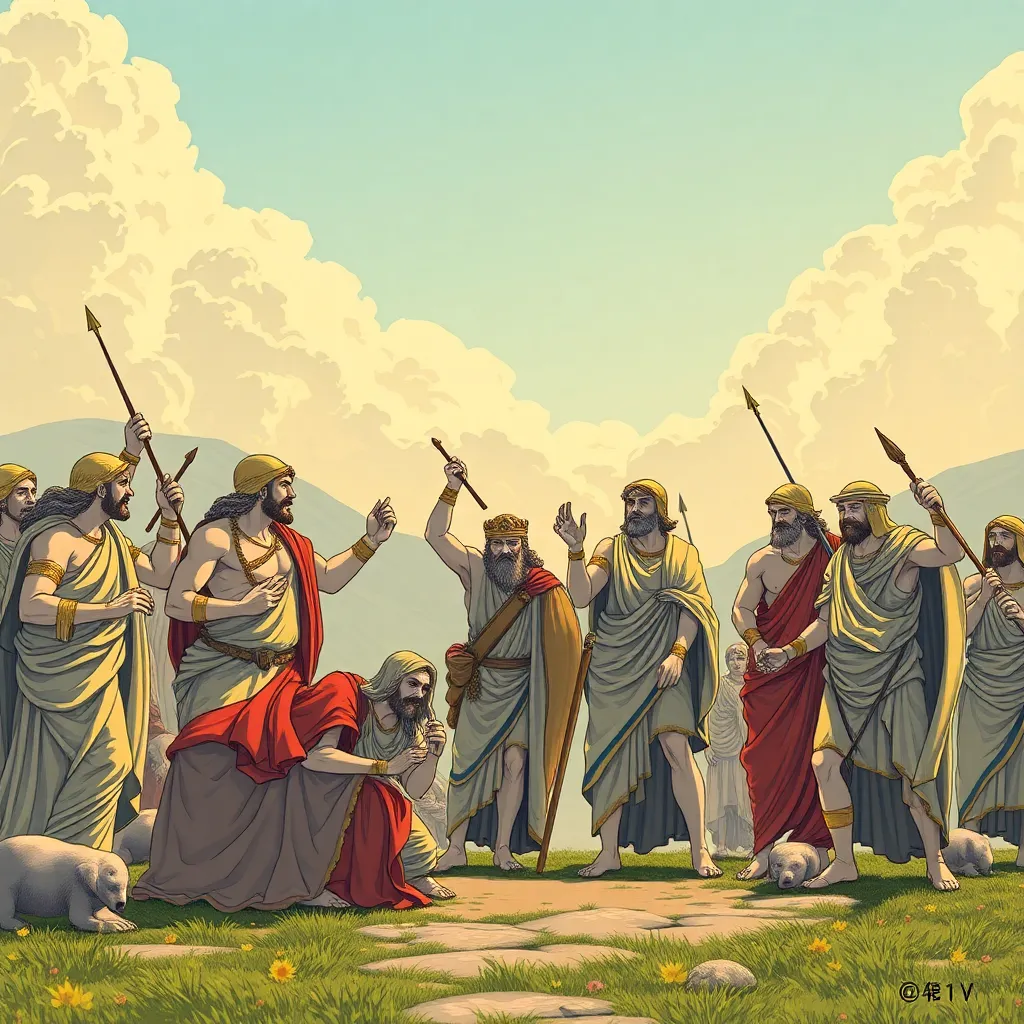The Role of Community and Belonging in Greek Heroic Myths
I. Introduction
Greek heroic myths are a collection of stories that depict the adventures and challenges faced by extraordinary individuals known as heroes. These narratives not only serve to entertain but also encapsulate the values, beliefs, and social structures of ancient Greek culture.
In ancient Greece, the concepts of community and belonging played a crucial role in shaping identities and guiding behaviors. The heroes of these myths often exemplified the ideals of their communities while grappling with their personal ambitions and desires.
This article explores the dynamics of community and belonging within Greek heroic myths, examining how these elements influenced the actions, motivations, and identities of some of the most iconic heroes in mythology.
II. The Concept of Heroism in Greek Mythology
Heroism in Greek mythology is characterized by a blend of exceptional abilities, moral integrity, and a commitment to societal values. Greek heroes are often depicted as larger-than-life figures who undertake quests that challenge their strength, intelligence, and resolve.
- Characteristics of Greek heroes:
- Exceptional strength or skill
- Bravery in the face of danger
- A noble lineage or divine parentage
- Commitment to honor and glory (kleos)
However, the interplay between individualism and communal values is a defining feature of these narratives. While heroes often seek personal glory, their actions are frequently influenced by the expectations and values of their communities.
Key examples of heroes and their communities include:
- Achilles and the Myrmidons
- Heracles and the Argonauts
- Theseus and the Athenians
III. The Role of Family in Heroic Narratives
Family ties are significant in shaping a hero’s identity and their motivations throughout their quests. The relationships heroes have with their family members often set the stage for their adventures and challenges.
Case studies of notable heroes highlight the importance of family:
- Perseus: His quest to slay Medusa is driven by a desire to prove himself to his mother, Danaë, and to fulfill his destiny.
- Heracles: His labors are a form of atonement for the madness sent by Hera, which led him to kill his own family.
- Oedipus: His tragic story revolves around his familial relationships and the prophecy that shapes his fate.
The impact of these familial relationships underscores the complexities of heroism, as heroes navigate their identities against the backdrop of their family legacies.
IV. Community and the Quest for Honor
In Greek culture, the pursuit of kleos, or glory, is paramount. This pursuit not only defines a hero’s actions but also reflects the expectations of their community.
Communal expectations often shape heroic actions, as heroes seek to uphold their reputation and honor their families and city-states. Examples of communal support in the journeys of heroes include:
- The assistance of the Argonauts in Jason’s quest for the Golden Fleece
- The support of Odysseus’s crew during his long journey home
- The collective effort of the Greek forces during the Trojan War
V. The Influence of Mythical Societies on Heroic Actions
City-states in ancient Greece had distinct values and beliefs that influenced the narratives of their heroes. These societies shaped the actions and motivations of heroes through their cultural norms and expectations.
Alliances and rivalries also played a significant role in shaping heroic narratives. For example:
- The Trojan War: The conflict exemplifies how alliances (e.g., the Achaean coalition) and rivalries (e.g., Achilles vs. Agamemnon) can drive heroic action.
- Achilles: His journey reflects the tension between individual honor and communal responsibility.
VI. Belonging and Identity in Greek Myths
Belonging to a community significantly influences a hero’s identity. The heroes’ actions often reflect the values of their respective communities, and their quests may serve as a means to affirm their place within those communities.
Heroes must balance personal ambition with communal obligations, leading to conflicts that drive their narratives. An analysis of heroes who struggle with their sense of belonging reveals this tension:
- The conflict between Theseus’s loyalty to Athens and his personal desires
- Oedipus’s struggle with his identity as both a king and a tragic figure
VII. The Consequences of Isolation in Heroic Myths
Isolation poses significant dangers for heroes, often leading to tragic outcomes. Heroes who become alienated from their communities face dire consequences that can affect their quests and legacies.
Examples of heroes who confront the consequences of isolation include:
- Achilles: His withdrawal from battle due to a personal slight leads to immense loss for his community.
- Odysseus: His prolonged absence from Ithaca creates turmoil for his family and kingdom, illustrating the repercussions of isolation.
These narratives convey important lessons about the value of community and the risks associated with alienation.
VIII. Conclusion
In conclusion, the significance of community and belonging in Greek heroic myths cannot be overstated. These themes are intricately woven into the fabric of heroic narratives, influencing the identities and actions of heroes.
Reflecting on these themes reveals their relevance in contemporary society, where community dynamics continue to shape individual identities and actions.
Ultimately, the enduring legacy of Greek heroism highlights the complex interplay between personal ambition and communal obligations, offering timeless lessons about the importance of connection and belonging in our lives.




